Facial Feminization Surgery (FFS) in Delhi
Search and Compare the Best Clinics and Doctors at the Lowest Prices for Facial Feminization Surgery (FFS) in Delhi

Find the best clinics for Facial Feminization Surgery (FFS) in Delhi
No pricing info available
Thailand offers the best prices Worldwide
Price: $ 1,945
AADI MediTour India - CHIKITSA Multispecialty Hospital, located in New Delhi, Delhi, India offers patients Facial Feminization Surgery (FFS) procedures among its total of 84 available procedures, across 16 different specialties. Currently, there's no pricing information for Facial Feminization Surgery (FFS) procedures at AADI MediTour India - CHIKITSA Multispecialty Hospital, as all prices are available on request only. All procedures and treatments are undertaken by just a small team of specialists, with 3 in total at the Hospital, and they are not accredited by any recognized accreditations institutes
Compare Before & After Photos of _procedure_photos.phpFacial Feminization Surgery (FFS)
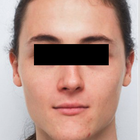
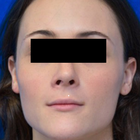
Front view
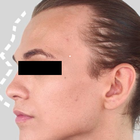
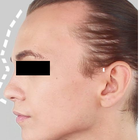
Half-side view
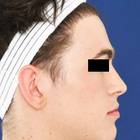
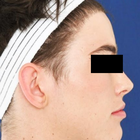
Full-side view
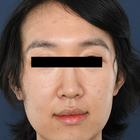
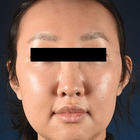
Front view
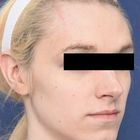
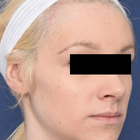
Half-side view
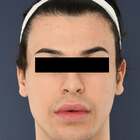
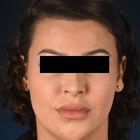
Front view
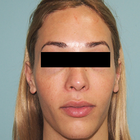
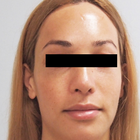
Front view
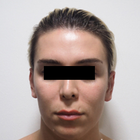

Front view
WHY US?
At Medijump, we're making medical easy. You can search, compare, discuss, and book your medical all in one place. We open the door to the best medical providers worldwide, saving you time and energy along the way, and it's all for FREE, no hidden fees, and no price markups guaranteed. So what are you waiting for?

Free

Best Price

Widest Selection

Risk-Free
What you need to know about Facial Feminization Surgery (FFS) in Delhi
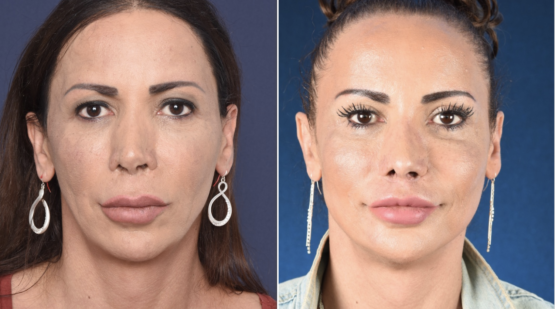
Facial Feminization Surgery, often abbreviated as FFS, is an extensive surgical process designed to modify masculine facial characteristics into a more feminine appearance. The procedure comprises several surgeries including rhinoplasty, forehead recontouring, and jaw and chin modifications. FFS is frequently sought after by transgender women desiring to more authentically express their gender identity. Any potential patient is advised to consult with a licensed surgeon to personalize the surgical plan according to their specific needs and aspirations.
Facial Feminization Surgery (FFS) usually necessitates an exhaustive pre-procedure assessment. This involves a thorough review of the patient's medical history, a complete physical examination, a psychological evaluation, and possibly facial x-rays. The surgeon will also discuss the aesthetic objectives, benefits, risks, and potential complications of the surgery with the patient. A collaborative decision-making approach is used to ensure patient safety and contentment following the procedure.
In this before and after example, the patient underwent Rhinoplasty, Chin recontouring, Jaw reduction, Lip lift, and eyelid surgery (blepharoplasty). The photo is taken 4 months post-op.
What is the cost of Facial Feminization Surgery (FFS) in Delhi?
Various elements such as the surgical complexity, hospital stays, anesthesiologist costs, and surgeon's fees influence Facial Feminization Surgery (FFS) pricing in Delhi. On average, possible charges vary from $20,000 up to $50,000. A detailed price breakdown from your healthcare provider will provide an exact view of the cost details.
The value of the procedure does not necessarily need to compromise the quality and standards of the surgery. Gain clarity about what components are inclusive and exclusive in the overall cost to understand thoroughly what your payment encompasses. Insurance firms usually do not cover aesthetic procedures, hence comprehensive knowledge and prudent financial preparation will streamline the procedure and make the Facial Feminization Surgery (FFS) a valid investment in enhancing your self-perception and assurance.
What does a Facial Feminization Surgery (FFS) Procedure Involve?
Facial Feminization Surgery (FFS) entails a range of tailored techniques aimed at personal needs with a focus on feminizing and gently modifying the facial structure. These techniques may encompass forehead reshaping, adjustments to the jaw and chin, rhinoplasty, facelifts, and other unique enhancements. The rising trend in health and well-being-oriented medical research is mirrored in personalized surgery schemes, ensuring the outcomes are attuned to individuals.
Normally, a care center will execute an in-depth consultation process to comprehend your aesthetic aspirations and draft a surgical blueprint. This evaluation is essential in harnessing the maximum advantages from the Facial Feminization Surgery (FFS). Ensuring the health and safety of the patient, a pre-operative assessment, encompassing a review of physical health and mental well-being, is a crucial measure.
How Long Should I Stay in Delhi for a Facial Feminization Surgery (FFS) Procedure?
During the planning phase for Facial Feminization Surgery (FFS), considering the necessary time for the operation and subsequent recovery is vital, in order to ensure a seamless return to standard duties. The length of your Delhi visit is heavily influenced by the surgery’s intricacy, your personal health condition, and your recovery speed. Generally, a timeframe of one to two weeks is advised before getting back to everyday activities.
However, the precise timeline can differ considerably, with follow-up meetings commonly arranged during your stay. These are paramount for evaluating your progress and identifying any possible surgical complications. This window also presents a chance for practising respiratory exercises and other preventive health methods to expedite a seamless recovery. Adherence to all the instructions given by your surgeon during this term is critical, as this significantly influences the success rate of the Facial Feminization Surgery (FFS).
What's the Recovery Time for Facial Feminization Surgery (FFS) Procedures in Delhi?
Recovery from Facial Feminization Surgery (FFS) can differ among individuals, largely depending on the procedure's scope and the patient's overall health. Usually, patients require approximately six weeks of recuperation before they can engage in strenuous activities. During this time, individuals may experience swelling, bruising, and discomfort related to the surgery, but these symptoms typically diminish over time.
Getting plenty of rest, maintaining adequate hydration, and consuming a balanced diet can aid in accelerating recovery. It's vital to strictly follow the healthcare provider's advice regarding prescribed medicines, care of surgical wounds, and limitations on activities to prevent complications and promote healing. Keep in mind that health and well-being extend beyond the surgical procedure itself, so comprehensive aftercare is essential for successful outcomes.
What sort of Aftercare is Required for Facial Feminization Surgery (FFS) Procedures in Delhi?
Appropriate aftercare is a vital component of successful Facial Feminization Surgery (FFS) and significantly influences the recovery process. It may include prescribed medications, regular medical check-ups, custom-made nutrition plans, and effective weight management. The recovery phase could span several weeks, during which adequate rest is paramount for a seamless recuperation.
Patients are often advised by their surgeons to temporarily abstain from rigorous physical activities and to maintain a healthy lifestyle. The latter should incorporate balanced nutrition, staying hydrated, taking supplements, and ensuring proper sleep and mental health management. It's important to note that adherence to the prescribed aftercare plan and attendance at follow-up visits are key to tracking improvements and promptly addressing any potential complications.
What's the Success Rate of Facial Feminization Surgery (FFS) Procedures in Delhi?
Facial Feminization Surgery (FFS) is recognized as an extremely successful surgery that produces transformative and enduring outcomes. The success rate fluctuates depending on various factors, including the proficiency of the surgeon, the overall health of the patient, and the quality of care after the surgery. A majority of patients report high levels of satisfaction, citing increased self-confidence and an enhanced quality of life.
It's important to understand, however, that despite its high success rate, the procedure isn't without potential risks and complications. Complications like infections, scarring, and dissatisfaction with the aesthetic outcome are potential, though they are rare occurrences. Thorough pre-operative evaluations, skilled surgical hands, and comprehensive post-operative care significantly lessen these risks. Consequently, when selecting the most suitable protocol for your Facial Feminization Surgery (FFS), the guiding factors should be patient safety and satisfaction.
Check out this video for before and after images of FFS patients, you'll be amazed by some of the results made possible by this surgical procedure.
Are there Alternatives to Facial Feminization Surgery (FFS) Procedures in Delhi?
Bear in mind that each person's needs and preferences are distinct, and surgical interventions might not be the most suitable route for everyone. There are other alternatives available for those who might be more inclined towards non-surgical solutions. Aesthetic treatments like injectable fillers, Botox, and others can simulate some effects of the Facial Feminization Surgery (FFS) on a temporary basis. However, cosmetic treatments of this kind typically necessitate ongoing sessions to preserve the sought after result.
Furthermore, some individuals might prefer to engage in psychological or behavioral therapies that encourage self-acceptance and a positive body image. Such therapies address the mental health components of self-image and gender dysphoria, offering a different perspective to surgery. Having open-ended discussions with healthcare providers to explore all the available options prior to making a decision is strongly advised.
What Should You Expect Before and After the Facial Feminization Surgery (FFS)?
Prior to undertaking Facial Feminization Surgery (FFS), patients participate in an in-depth consultation process. During this stage, surgeons evaluate the individual's health status, expectations, and motivations to design a treatment program that best meets their needs. Various health screenings may be conducted to verify the patient's physical suitability for the operation.
Post-procedure, initial weeks may bring about some degree of discomfort, swelling, and bruising, which will progressively decrease. Adequate post-procedure care can significantly improve recovery and the ultimate outcome of your Facial Feminization Surgery (FFS). It's crucial to maintain regular communication with your surgeon and promptly report any unusual symptoms. The goal is to ensure a successful surgical procedure followed by a rapid and smooth recovery, guiding you towards a more self-assured version of yourself.
What is the Preoperative Preparation for Facial Feminization Surgery (FFS) in Delhi?
Preparing for Facial Feminization Surgery (FFS) entails addressing both physical and mental aspects to ensure successful surgery and recuperation. Patients undergo comprehensive evaluations involving various diagnostic tests to determine their overall health and suitability for the surgery. Moreover, patients may need to halt tobacco use, moderate alcohol consumption, and adjust certain medications—especially those affecting blood clotting—as these factors could disrupt both the surgical process and healing.
In addition, therapy sessions may be suggested to assist individuals in managing the psychological implications of such a life-changing procedure. A balanced diet is also pivotal in enhancing the body's healing capacity; adopting a healthy eating regimen, such as the Mediterranean diet, and considering suitable nutritional supplements can optimize preoperative preparation. Emphasizing mental wellbeing is another vital aspect of the journey, and implementing stress management strategies can prove beneficial during this period.
What are the Long-term Implications of Facial Feminization Surgery (FFS) in Delhi?
Facial Feminization Surgery (FFS) is often viewed as a long-term commitment that yields lasting and significant transformations. It significantly enhances self-image and self-confidence, leading to a substantial improvement in life quality. Though the changes induced by the surgery are generally unchanging, sustaining a consistent weight and adopting a healthy lifestyle are vital in preserving the results.
It's important to bear in mind that adjusting psychologically is an integral aspect of such a transformative experience. Individual or group therapies can aid in navigating these changes, fostering deep-seated growth and self-understanding following the Facial Feminization Surgery (FFS). Always remember, the success of a procedure goes beyond the physical alteration—it also involves overall wellbeing, health, and a positive life perspective.
Whilst the information presented here has been accurately sourced and verified by a medical professional for its accuracy, it is still advised to consult with your doctor before pursuing a medical treatment at one of the listed medical providers
No Time?
Tell us what you're looking for and we'll reachout to the top clinics all at once
Enquire Now

Popular Procedures in Delhi
Prices Start From $96

Prices Start From $111

Prices Start From $70

Prices Start From $16

Prices Start From $220

Prices Start From $28

Prices Start From $672

Prices Start From $275

Prices Start From $101

Prices Start From $556

Prices Start From $4,377

Recommended Medical Centers in Delhi for Facial Feminization Surgery (FFS)

- Interpreter services
- Translation service
- Religious facilities
- Medical records transfer
- Medical travel insurance
- Health insurance coordination
- TV in the room
- Safe in the room
- Phone in the room
- Private rooms for patients available

- Interpreter services
- Translation service
- Religious facilities
- Medical records transfer
- Medical travel insurance
- Health insurance coordination
- TV in the room
- Safe in the room
- Phone in the room
- Private rooms for patients available

- Interpreter services
- Translation service
- Religious facilities
- Medical records transfer
- Medical travel insurance
- Health insurance coordination
- TV in the room
- Safe in the room
- Phone in the room
- Private rooms for patients available

- Interpreter services
- Translation service
- Religious facilities
- Medical records transfer
- Medical travel insurance
- Health insurance coordination
- TV in the room
- Safe in the room
- Phone in the room
- Private rooms for patients available

- Interpreter services
- Translation service
- Religious facilities
- Medical records transfer
- Medical travel insurance
- Health insurance coordination
- TV in the room
- Safe in the room
- Phone in the room
- Private rooms for patients available

- Interpreter services
- Translation service
- Religious facilities
- Medical records transfer
- Medical travel insurance
- Health insurance coordination
- TV in the room
- Safe in the room
- Phone in the room
- Private rooms for patients available

- Interpreter services
- Translation service
- Religious facilities
- Medical records transfer
- Medical travel insurance
- Health insurance coordination
- TV in the room
- Safe in the room
- Phone in the room
- Private rooms for patients available

- Interpreter services
- Translation service
- Religious facilities
- Medical records transfer
- Medical travel insurance
- Health insurance coordination
- TV in the room
- Safe in the room
- Phone in the room
- Private rooms for patients available

- Interpreter services
- Translation service
- Religious facilities
- Medical records transfer
- Medical travel insurance
- Health insurance coordination
- TV in the room
- Safe in the room
- Phone in the room
- Private rooms for patients available

- Interpreter services
- Translation service
- Religious facilities
- Medical records transfer
- Medical travel insurance
- Health insurance coordination
- TV in the room
- Safe in the room
- Phone in the room
- Private rooms for patients available
Facial Feminization Surgery (FFS) in and around Delhi
Introduction
Delhi is officially known as the National Capital Territory of Delhi (NCT). It is home to the capital of India, New Delhi. With a population of over 18 million, it is the second most populous city in the country. The city is brimming with vibrant modern life but also still steeped in history. People come to the city for its cultural richness and gastronomic scene.
Recently, Delhi has emerged as a medical tourists’ favorite destination. It’s the perfect place for those who seek low cost high-quality, world-class healthcare. India continues to expand its medical tourism sector with Delhi as one of the top hubs for medical facilities. Among the leading hospitals in Delhi are Max Super Specialty Hospital, Apollo Hospital Indraprastha, and BLK Super Specialty Hospital. Breast Augmentation and heart surgery procedures are two of the most popular procedures in the city. Patients come to Delhi for the following reason:
- State of the art medical facilities with international and local accreditation
- Skilled doctors, many of which trained in the UK
- English speaking doctors and staff
- Wide range, cost-effective procedures
- Traditional healthcare therapies and practices such as Ayurveda and yoga
Popular Areas in Delhi
Delhi is overflowing with enchanting history and colorful modern life. The city is made of layers of history, temples, monuments, markets, and UNESCO World Heritage Sites. Many tourists come to witness its charm and discover its hidden treasures. Go to Old Delhi and visit the Red Fort where a load of people fell in love with its beautiful structure influenced by Islamic, Persian, Hindu, and Timurid traditions. Learn Islamic history in one of the largest mosque in India, Jama Masjid. Shop in Chandni Chowk Market, the largest shopping hub in Delhi. Pay your respect in Raj Ghat, a memorial dedicated to Mahatma Gandhi.
There is also New Delhi, India’s capital, where you can stroll around India Gate, a war memorial that was inspired by the Arc de Triomphe. Humayun’s Tomb, the tomb of the Mughal Emperor Humayun, is also worth a visit for anyone who loves history. Don’t forget to go to the Gandhi Museum (Gandhi Smirti) to learn more about the leader of Indian independence’s life. Tourists can also visit an enthralling historical site known as Purana Qila. In your spare time, you can shop in Janpath Market and Sarojini Market.
South Delhi has many sites to enjoy such as the unique Lotus Temple, the soaring tower of victory Qutab Minar, and the thriving nightlife of Hauz Khas Village. This district also has a famous shopping paradise including Dilli Haat, Shahpur Jat, GK 1 N-block market, and Dastkar Nature Bazaar.
Weather and Climate in Delhi
Delhi has a high variation of temperature between summer and winter. Summer in Delhi can get really hot with an average temperature of around 32°C. The season starts in April to June and the temperature can reach as high as 46°C. It is advisable to avoid this season if you’re planning to do a lot of outdoor activities. The monsoon starts in late June to mid-September. The temperature usually falls to an average of 29°C, but it’s rainy and humid.
The temperature plummets during winter, ranging between 6°C to 7°C. This season starts in November and lasts until March. October to March is the best time to visit Delhi because the weather is neither too hot or too cold.
Getting Around in Delhi
Indira Gandhi International Airport, located 16 km from New Delhi city center, is the busiest airport in India. This airport serves domestic and international flights that connect the city with almost every country across the globe. Terminal 1 is used by budget airlines such as IndiGo and SpiceJet, while Terminal 3 is mainly used for international operations and several domestic flights.
The city center can be reached by bus, airport taxi, and metro. The bus is the most affordable option although it can be very crowded. Taxi is a good way to travel but always use licensed taxis such as WTi Cabs, Meru, and Mega Cabs. App-based taxis like Ola and Uber is another choice of travel. The fastest way to travel to Delhi’s city center is by The Delhi Metro. The travel time is less than 25 minutes and should cost around 10 INR to 60 INR.
There are several transportation modes to get around Delhi. The Delhi Metro is the best option to travel around because it offers comfort and fast travel. Taxis are widely available in the city. The easiest way to call a taxi is by the Ola app. It’s usually cheaper to use Ola than a local taxi stands.
For shortstops, opt for auto rickshaws. They’re affordable and easy to find. Make sure to negotiate the fare before getting in because most drivers will refuse using the meter. The drivers are also known to overcharge foreign visitors. Driving around Delhi is not recommended since the traffic can be time-consuming and there is a lot of bad driving. You can always hire a local driver if you want to get around by car.
Tourist Visas in Delhi
Citizens of Nepal and Bhutan can enter India without a visa. Citizens of Japan and South Korea can apply for a visa on arrival. Citizens of 150 countries can apply for e-Visa which is valid for 60 days. There are medical and medical attendant e-visas for tourists who come for healthcare. Other nationalities are required to apply and obtain a visa before entering the country.
All visitors must hold a passport valid for at least 180 days after their entry to India and should have at least two blank pages.
Additional Information
- Local Currency: the official currency is the Indian rupee (INR). 1 USD converts to 70 INR.
- Money & Payments: Major currencies such as US dollars, euros, and pounds sterling are easy to change throughout the city. The easiest way to exchange money is by using ATMs. Some shops, restaurants, and hotels will accept credit cards. It is advisable to always carry cash since a lot of places still accept cash only. Restaurants sometimes add a 10% service fee to the bills.
- Local Language: Hindi is the official language of Delhi. Urdu and Punjabi are widely spoken. Most people will be familiar with English. Many young people shop keepers, and tour guides can speak English very well.
- Local Culture and Religion: The major religion is Hinduism, followed by Islam, Christianity, Sikhism, Jainism, Buddhism, and Judaism.
- Public Holidays: The city celebrates major religions (Hindus, Muslims, and Christians) holidays. The city hosts many festivals all year round such as The Grub Fest, The Palate Fest, and Holi Festival.
Popular Searches
- Plastic Surgery in Thailand
- Dental Implants in Thailand
- Hair Transplant in Thailand
- Breast Augmentation Thailand
- Gastric Sleeve in Thailand
- Gender Reassignment Surgery in Thailand
- Laser Hair Removal in Bangkok
- Botox in Bangkok
- Dermatology in Bangkok
- Breast Augmentation in Bangkok
- Coolsculpting in Bangkok
- Veneers in Turkey
- Hair Transplant in Turkey
- Rhinoplasty in Turkey
- Stem Cell Therapy in Mexico
- Rhinoplasty in Mexico
- Liposuction in Mexico
- Coolsculpting in Tijuana
- Rhinoplasty in Korea
- Scar Removal in Korea
- Gastric Sleeve in Turkey
- Bone Marrow Transplant in India
- Invisalign in Malaysia
- Plastic Surgery in the Dominican Republic
- Tummy Tuck in the Dominican Republic
- Plastic and Cosmetic Surgery in Poland
- Rhinoplasty in Poland
- Hair Implant in Poland
- Dental Implants in Poland
- IVF in Turkey
